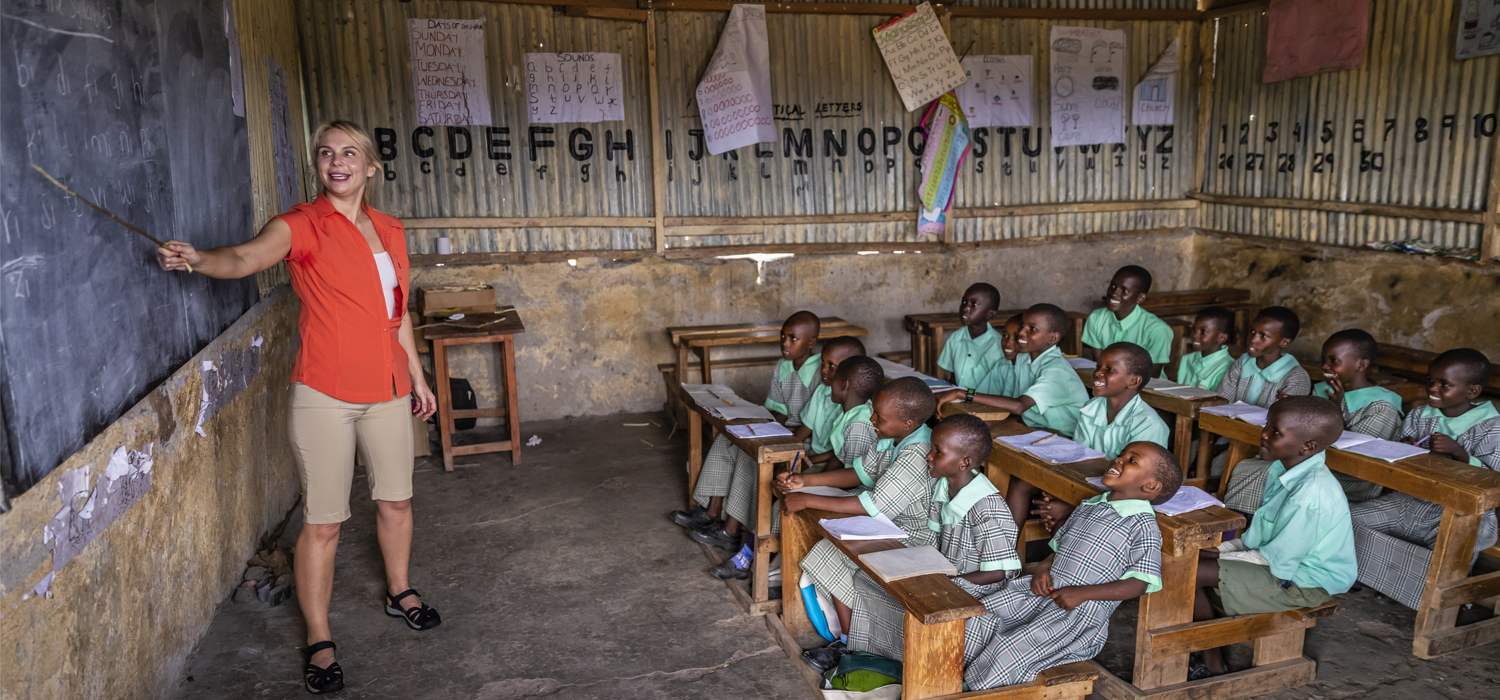Our Top Ten Tips on Choosing a Volunteer Programme
Posted in High Risk Travel Insurance on 4 April 2025

Volunteering abroad is an incredible way to experience new cultures while making a meaningful impact. Whether you're a recent graduate, taking a career break, or simply looking for an enriching travel experience, volunteering offers a unique perspective beyond traditional tourism.
By immersing yourself in local communities and contributing to valuable projects, you gain a deeper understanding of different ways of life. However, choosing the right volunteer programme requires careful planning to ensure a fulfilling and smooth experience. Here are some key tips to help you find the best fit for your journey.
1. Determine Your Budget
Your budget is one of the biggest factors in deciding which volunteer programme abroad to choose. Start by considering the total costs associated with your trip, including:
- Programme fees
- Accommodation and meals
- Flights and local transportation
- Travel insurance
- Additional expenses (e.g., visas, vaccinations, personal costs)
By planning your budget early, you can determine how long you can afford to volunteer and whether you need to fundraise to cover costs. Also, compare flight prices to different destinations, as they can significantly impact your overall expenditure.
2. Find the Right Type of Volunteer Programme
Before selecting a programme, ask yourself:
- Do I want to volunteer in an area where I already have skills?
- Am I open to learning a completely new skill?
Choosing a programme that aligns with your interests and abilities ensures you get the most out of your experience. Some common types of volunteer programmes include:
Animal Care
- Supporting local rescue centres by feeding, caring for, and socialising with animals.
Conservation
- Environmental Conservation – Assisting with reforestation, habitat restoration, and sustainability initiatives.
- Wildlife Conservation – Protecting endangered species and maintaining ecosystems.
- Marine Conservation – Working with ocean ecosystems and marine life protection.
Teaching & Childcare
- Teaching English as a foreign language or assisting in childcare centres.
It’s also important to consider the ethical impact of a programme. Some opportunities may not provide the positive impact they intend, so it’s worth researching how organisations support local communities. Look for programmes that are transparent about volunteer contributions and prioritise long-term, sustainable benefits.
3. Decide on Your Volunteer Duration
Volunteer programmes range from short-term (one week to three months) to long-term (six months or more). Consider the following when deciding:
- Short-term programmes often don’t require specific qualifications.
- Long-term programmes may require professional experience or training and typically involve more responsibilities.
Understanding the commitment level needed will help you choose a programme that aligns with your availability and skills.
4. Learn What’s Included
Each programme offers different levels of support. Before committing, ask:
- Support: Is there 24/7 in-country assistance? What emergency procedures are in place?
- Insurance: Does the programme provide coverage, or will you need your own?
- Training: Does the programme offer preparation in language skills, cultural awareness, or conflict resolution?
Knowing what's covered can help you budget for extra expenses and ensure you are adequately prepared for your journey.
5. Connect with Past Volunteers
Speaking with former volunteers can provide insight into:
- The daily tasks involved in the programme
- The organisation’s reliability and ethos
- Useful items to pack for the trip
Many volunteer organisations have forums or social media groups where you can connect with alumni for first-hand advice.
Travel Insurance for Volunteering
Volunteering abroad is an enriching experience, but it comes with risks. Having the right volunteer travel insurance ensures you’re protected against unforeseen issues such as medical emergencies, trip cancellations, or lost belongings. Here’s what to consider:
- Animal volunteering: Coverage is available for working with domestic or small wild animals, but not for interactions with dangerous wildlife (e.g., lions, tigers, or big cats).
- Work-related liability: There is no cover for liability claims arising in the workplace, whether the work is paid or unpaid.
- Manual labour: If your volunteering involves construction, machinery, or manual labour, check whether these activities are covered under your policy.
Travelling to a High-risk Destination? Don’t Forget to Buy Your High Risk Voyager Travel Insurance
For added peace of mind safeguard your next journey with Specialist Medical & Travel Insurance for high-risk destinations from High Risk Voyager. We offer 2 levels of cover with Single Trip or Annual Multi-Trip options, policy highlights include:
- Emergency Medical Evacuation / Repatriation - Up to £1,000,000
- Emergency Medical Expenses - Up to £1,000,000
- Cancellation Cover - Up to £1,500
- Baggage Cover - Up to £1,500
- Cover for business trips and leisure trips
And much more!
For Peace of Mind, even in the Most Unpredictable Places.
Click here to find out more about High Risk Voyager Volunteer Travel Insurance
This article is for information and entertainment purposes only. It does not constitute advice in any way. The information provided here is correct at the time of writing, however, please check the latest policy wording for the latest terms, conditions, and exclusions.
Other Related News Articles...
- What Heathrow’s Closure Means for Your Journey


